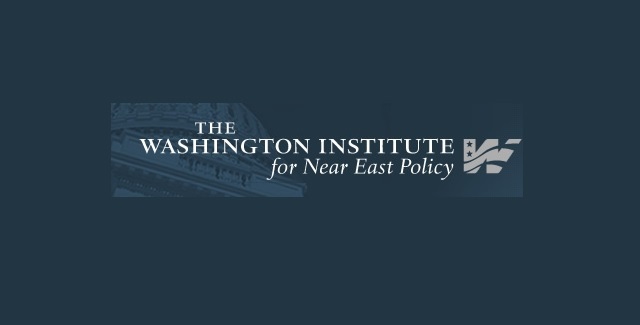Capitulation: P5+1 Iran Nuclear Deal Reached in Vienna
News came from Vienna this morning that a final deal has been reached between the P5+1 and the Islamic Republic of Iran. The Jerusalem Post reported:
World powers have reached a final, comprehensive agreement with Iran that will govern its nuclear program for over a decade, diplomats said on Tuesday morning.
The deal culminates a two-year diplomatic effort in which the five permanent members of the United Nations Security Council, led by the United States, have sought to end a twelve-year crisis over Iran’s suspicious nuclear work.
Formally known as the the Joint Comprehensive Plan of Action, the 100-page document amounts to the most significant multilateral agreement reached in several decades. Its final form is roundly opposed in Israel by the government, by its opposition, and by the public at large.
The JCPOA allows Iran to retain much of its nuclear infrastructure, and grants it the right to enrich uranium on its own soil. But the deal also requires Iran to cap and partially roll back that infrastructure for ten to fifteen years, and grants the UN’s nuclear watchdog, the International Atomic Energy Agency, managed access to monitor that program with intrusive inspections.
In exchange, the governments of Britain, France, Russia, China, the US and Germany have agreed to lift all UN sanctions on the Islamic Republic, once Iran abides by a set of nuclear-related commitments.
The United Nations’ nuclear watchdog, the International Atomic Energy Agency, will be tasked with enforcing the agreement over its lifetime. The UN Security Council will soon vote on a resolution to codify the deal.
So, too, will the United States Congress. The US legislature now has a 60-day period to review the deal and, should its leadership choose, vote on a resolution approving or disapproving of the deal. A vote of disapproval would be subject to a presidential veto, which Congress may then vote to override.
Israel and its Arab neighbors are united in opposition to the agreement, warning it will legitimize Iran as a nuclear-threshold state in the short-term, and embolden its form of government – a theocratic republic – in the long-term.
The deal seeks to verifiably prevent Iran from acquiring a nuclear weapon, and to keep Tehran at least one year away from having the capability to build such a weapon.
The JCPOA will not be “signed.” Negotiators in Vienna have agreed to “adopt” the text, and will spend several months preparing to implement various provisions of the highly technical agreement.
With this announcement from Vienna the unraveling of this dangerous legacy of President Obama and Secretary of State Kerry will ensue with triggering of the 60 day review by Congress under the Iran Nuclear Agreement Review Act. As if orchestrated on cue in this duplicitous act of appeasement, President Obama will go to Capitol Hill to make the case to Democratic members that this agreement is a Hobson’s Choice, the least bad deal, under the circumstances with Iran.
For the Republican Congressional majorities in both houses it will present a daunting task to enlist a minority of wary Democratic colleagues to join with them to reject the Joint Plan of Action attempting to make it veto proof. Allies in the Middle East Israel, Saudi Arabia the Gulf Emirates and Egypt oppose the agreement as it facilitates Iran becoming a nuclear threshold state supporter of terrorism equipped with ICBMs. It will trigger proliferation and possible eventual military action against Iran’s nuclear infrastructure.
Reliance on less than intrusive UN inspections of military sites and both known and unknown sites will assure Iran’s becoming a nuclear threshold power. Obama will leave behind a literal Stygian Stable of difficulties for his successor to enforce compliance by Iran with questionable snap back sanctions subject to a committee including Iran. Israel will be left virtually alone to its own means to combat a nuclear equipped apocalyptic Islamo fascist Iran.
UPDATE: Washington, D.C. – U.S. Senator Marco Rubio (R-FL), a member of the Senate Foreign Relations Committee, today commented on the Obama Administration’s announcement of a nuclear deal with Iran:
“I have said from the beginning of this process that I would not support a deal with Iran that allows the mullahs to retain the ability to develop nuclear weapons, threaten Israel, and continue their regional expansionism and support for terrorism. Based on what we know thus far, I believe that this deal undermines our national security. President Obama has consistently negotiated from a position of weakness, giving concession after concession to a regime that has American blood on its hands, holds Americans hostage, and has consistently violated every agreement it ever signed.
I expect that a significant majority in Congress will share my skepticism of this agreement and vote it down. Failure by the President to obtain congressional support will tell the Iranians and the world that this is Barack Obama’s deal, not an agreement with lasting support from the United States. It will then be left to the next President to return us to a position of American strength and re-impose sanctions on this despicable regime until it is truly willing to abandon its nuclear ambitions and is no longer a threat to international security.”
RELATED ARTICLES:
Here’s the Truth About 6 of Obama’s Iran Deal Claims
23 Tweets Responding to the Iran Nuclear Deal
What 2016ers Say About Obama’s Nuke Deal With Iran
EDITORS NOTE: This column originally appeared in the New English Review. The featured image is of U.S. Secretary of State Kerry and Iranian Foreign Minister Zarif Vienna June 30, 2015. Source: Reuters.


